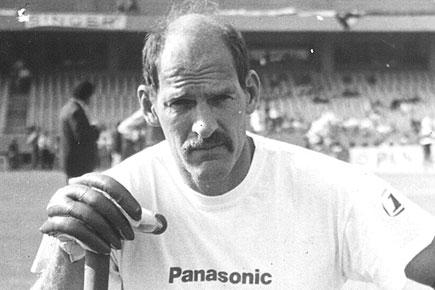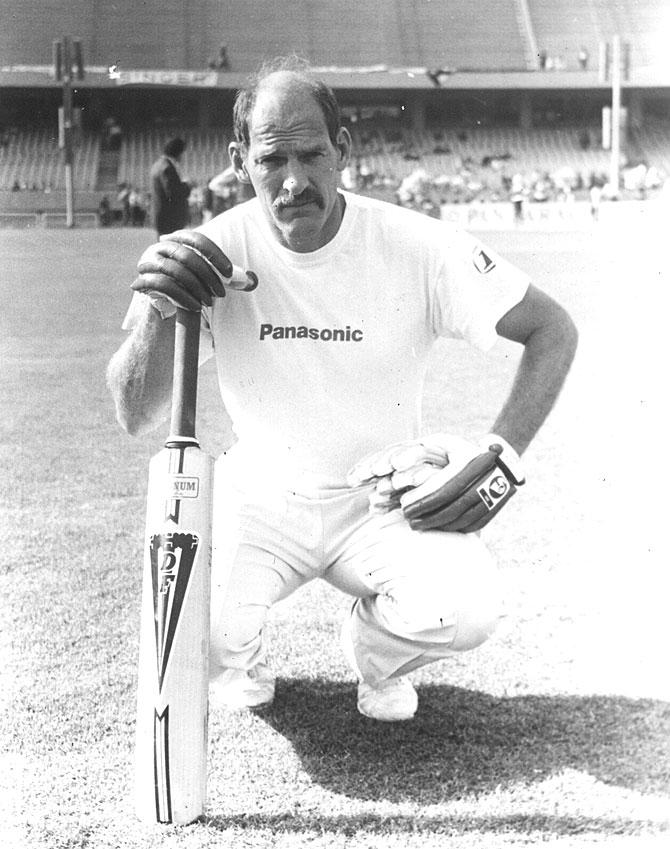Former all-rounder Clive Rice, the first post-apartheid captain of South Africa, died on Tuesday aged 66. Rice had been suffering from a brain tumour

Cape Town: Clive Rice, South Africa's first cricket captain in the post-apartheid era, passed away on Tuesday after losing his battle with septicaemia -- a potentially life threatening infection in which large amounts of bacteria are present in the blood.
ADVERTISEMENT
The former cricketer was suffering from a brain tumour. Rice was the first post-apartheid captain of South Africa and one of the stars of Nottinghamshire County side in the 1970s and 1980s.
Rice, who had been suffering from a brain tumour, played most of his cricket during South Africa's 20-year isolation
from the international game. He was selected for a 1971-72 tour of Australia, which was cancelled because of opposition to the South African government's policy of apartheid.
When South Africa returned to the international fold in November 1991, Rice was appointed captain of a team which played three one-day internationals (ODIs) in India.
The British daily 'The Telegraph' in its obit called him 'Best cricketer who never played a Test'. The obit goes on to mention that Rice could have been bracketed with the four great all-rounders of the 1980s – Ian Botham, Richard Hadlee, Imran Khan and Kapil Dev – if politics had allowed.
 Former South African cricket captain Clive Rice. Pic: mid-day archive
Former South African cricket captain Clive Rice. Pic: mid-day archive
But he was controversially omitted from the South Africa team which played in the 1992 World Cup in Australia and New Zealand with the selectors placing an emphasis on youth..
In an era of notable all-rounders, including Ian Botham, Imran Khan, Kapil Dev and Richard Hadlee, Rice's exploits
were limited to South African domestic cricket, the English county championship and Kerry Packer's World Series Cricket. He excelled in them all.
Rice captained the Transvaal 'mean machine' which dominated South Africa's domestic competitions during the 1980s, led Nottinghamshire to their first county championship in 52 years and was one of the stars in the Packer matches.
Over a first-class career spanning 25 years, Rice scored 26,331 runs in 482 matches, including a highest score of 246. A hugely respected fast bowler, he claimed 930 wickets at an average of 22.49 in a career where he also represented Nottinghamshire, Transvaal, Natal and Scotland with distinction.
In 1981 he was named the Wisden Cricketer of the Year.
Rice, who turned 66 five days ago, died in his native South Afica just over four months after receiving robotic radiation treatment in Bangalore, which he described in an interview in March as "miraculous".
Condoling Rice's death, International Cricket Council (ICC) chief executive and former South Africa international David Richardson described the deceased as a "giant of the game, not just in South Africa, but across the cricketing world".
"Though his international appearances for the Proteas were limited to just three ODIs, Clive was a hugely inspirational figure for those of us who had the privilege to represent our country since readmission to international cricket in 1991 and it was fitting that Clive was named captain of the national team on that historic first tour to India," he said.
 Subscribe today by clicking the link and stay updated with the latest news!" Click here!
Subscribe today by clicking the link and stay updated with the latest news!" Click here!







